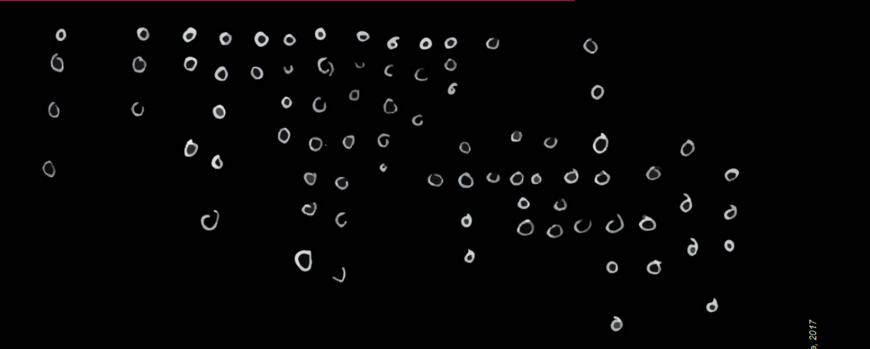Good Scientific Practices in the Age of Uncertainty
Description
13th-14th June, 2017
With the election of Donald Trump as the president of the United States, which exemplifies the global “turn to the right” – the rise of nationalism, populism and fascism –, we are entering an age of uncertainty. This age of uncertainty is perhaps how the doom-day of capitalism might look like (as Wolfgang Streeck suggests in his recent book How Will Capitalism End) and perhaps it is also how the failure of generations of anti-colonial, feminist, and queer struggles might feel like. In the current climate of the assault on critical intelligentsia, the precarization of intellectual labor, the conformist tendency of institutional policies regarding research, and the depoliticization of science, what constitutes “good scientific practice” needs to be critically rethought. Against such an urgent political background The workshop “Good Scientific Practice” not only addressed such issues such as plagiarism, authorship and copyright (pertinent to research training), but more importantly it also invited the participants (RTG – Minor Cosmopolitanisms PhD candidates) guided by two guest speakers, Prof. Dr. Whitney Bauman (Florida, Jena) and Dr. Rosa Barotsi (ICI-Berlin), to depart from our critical capacity to re-examine what is “scientific practice” and what constitutes as a “good scientific practice”. We will discuss issues such as “scientific neutrality," “the role of the intellect” and “the vocationalization of research and education”. In this age of uncertainty, we ask, what is the relationship between science and politics? What is scientific research (in the humanities and social sciences) for? Who are we writing for? What is good about a good scientific practice? The workshop ended with a keynote conversation between art scholars Prof. Dr. Hito Steyerl and Dr. Tom Holert.
Concept and Organization by Zairong Xiang
Workshops
13th June 2017
Introduction: Dr. Rosa Barotsi (ICI Berlin)
Dr. Rosa Barotsi (ICI Berlin) led a critical introduction around questions regarding the politics of research and debates around the role of the university. Dr. Barotsi first introduced the consensus on Good Scientific Practice on the European level, and also introduced various kinds of research mainly in the field of humanities and social sciences as a way to critically approach the Nature-science oriented discussion on “good scientific practices.”
Fellow-Led Discussions
“Authorship and Appropriation”
“Objectivity, Positionality, and Accountability”
14th June 2017
Introduction: Prof. Dr. Whitney Bauman (Florida International University)
Prof. Dr. Whitney Bauman (Florida International University, Humboldt Scholar at University of Jena) led a practical introduction to the question of writing and publication. Introduced were two major issues: 1. How to organize a big project such as a PhD thesis and/or a research monograph; 2. What is the process of academic publishing: how to identify a journal, submit an article; what is the reviewing process, how to deal with rejections; what is Open Access publication etc.
Fellow-Led Discussions
“North-south power-relation, Language usage, Collaborative Research”
“Plagiarism, Copyright, Academia and the Market”
Prof. Dr. Hito Steyerl (Berlin University of the Arts)
Dr. Tom Holert
A Conversation between Hito Steyerl and Tom Holert
14th June 2017, 18:00
The conversational keynote was conceptualized to be a free-form non-academic conversation between the two discussants around fake news, fake science, fake art, the construction of facts and traditional mechanisms of their validation; science, media and the law - and expanded horizons on scientific research surrounding those topics. They asked how these areas are changing with digital technology, communication, automation and their social consequences like post-fascism? What remains of art’s alleged critical fictionality when truth claims of science and power are everywhere replaced by smug “truthiness”? Similar changes have been discussed for decades in the realm of documentary practice and photographic indexicality. How can we prolong those vectors into the present, when research is defunded, facts ridiculed and large parts of global elites turn fascist?
Professor Dr. Hito Steyerl is a filmmaker, visual artist, writer, and innovator of the essay documentary. Her principal topics of interest are media, technology, and the global circulation of images. Steyerl holds a PhD in Philosophy from the Academy of Fine Arts Vienna. She is currently a professor of New Media Art at the Berlin University of the Arts, where she co-founded the Research Center for Proxy Politics.
Dr. Tom Holert is an art historian, writer, curator and artist. He was a former editor of art magazines Texte zur Kunst and Spex. Holert is honorary professor of art theory and cultural studies at the Academy of Fine Arts Vienna. Between 2012 and 2017 he was a founding member of the Academy of the Arts of the World, Cologne. In 2015 he (co-)founded the Harun Farocki Institut (HaFI) in Berlin (harun-farocki-institut.org).

